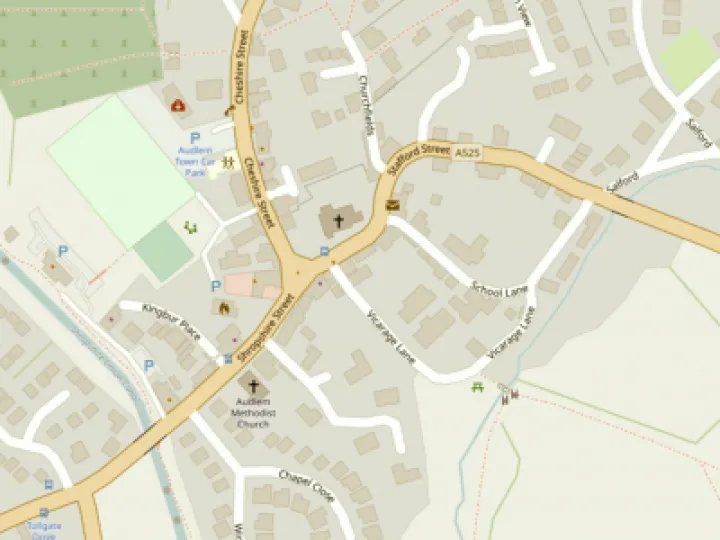Achievement of pupils at Audlem School








Yesterday, we announced the very welcome news that Audlem St James' school had been assessed by Ofsted as a 'Good School'.
We published a summary of the findings where the inspectors rated the school 'Good' in two aspects and 'Outstanding' in the other two.
Today, we give more details from the Ofsted report on the first of the 'Good' ratings,'The achievement of pupils.' This is what Ofsted say:
Inspection judgements
The achievement of pupils is good
- Children in the Early Years Foundation Stage are given a very good start in Nursery and Reception, where there have been significant improvements since the previous inspection.
- A vastly improved learning environment has changed the way that teachers plan and assess children's development, and has, consequently, lifted the quality of teaching and learning to consistently good.
- Children's abilities are typical for their age when they enter Nursery. All reach at least a good level of development in all that they do and are fully prepared for the challenges of Year 1 by the time they leave Reception.
- Good progress continues in Years 1 and 2. The proportion of pupils reaching the expected standard in the Year 1 phonics (letters and sounds) screening test was above average in 2013. This means that pupils read confidently by the end of Year 2. They read regularly at home and at school, enjoy books and achieve well. Standards in reading are improving.
- Standards in writing and mathematics also show a rising trend over time at the end of Year 2. Pupils' current work shows good progress and school assessments indicate an improvement in standards over previous years.
- There was a dip in overall standards in Year 6 in 2013, caused by disrupted teaching and sometimes ineffective learning for that group earlier in the key stage. That led to some underachievement by some pupils.
- The situation was tackled head on by the headteacher on her arrival in the school. Although evidence shows that most pupils made good progress over the short term from their individual starting points, some did not attain the expected standards in English and mathematics, because there was not enough time for them to make up all the ground they had lost.
- Currently, standards in English and mathematics in Year 6 are on track to be above average by the time they leave. Pupils' progress has improved rapidly since the previous inspection, due largely to the headteacher's highly effective leadership in improving teaching and systems for checking progress and setting targets for pupils.
- Pupils in Year 6 read to a high standard. They have very positive attitudes to reading and strive to reach the school's high expectations of them as fluent readers who enjoy books.
- Disabled pupils and those with special educational needs make good progress from their individual starting points. The school sets ambitious targets for these pupils and provides good additional teaching support for them so that this group of pupils achieve well. Progress is checked very carefully and individual case studies help teachers to measure the impact of the help that is given.
- Most-able pupils are also given additional help so that they can achieve their best. There are 'booster' teaching groups for pupils who are potentially capable of reaching the highest Level 6 in national tests. That number is increasing. This level of support, which is outside usual lesson times, is not always reflected as strongly in pupils' learning in lessons and sometimes teachers play 'too safe' by not letting pupils get to the real challenges quickly enough.
- Very few pupils in the school are supported by pupil premium funding, including those known to be eligible for free school meals. Analysis of the group's current progress shows almost no differences in Years 3 and 4 and only slight differences in reading between groups in Years 5 and 6.
There are too few pupils known to be eligible for free school meals to make a comparison of their attainment in English and in mathematics. There is regular discussion between the headteacher and governors about the impact of pupil premium spending, so that pupils who are supported by the funding continue to have equal opportunities to achieve their best.
Tomorrow, we will publish what Ofsted say about 'The quality of teaching.' 
This article is from our news archive. As a result pictures or videos originally associated with it may have been removed and some of the content may no longer be accurate or relevant.
Get In Touch
AudlemOnline is powered by our active community.
Please send us your news and views using the button below:
Email: editor@audlem.org





